“Artificial Intelligence,” is a part of computer science that focuses on making machines that can think and learn like people based on some mathematical calculation.
AI systems are made to look at and make sense of a lot of data, learn from patterns and experiences, and make choices or predictions based on that information. AI is the process of making smart algorithms and models that let computers do tasks on their own, without having to be programmed for each job.
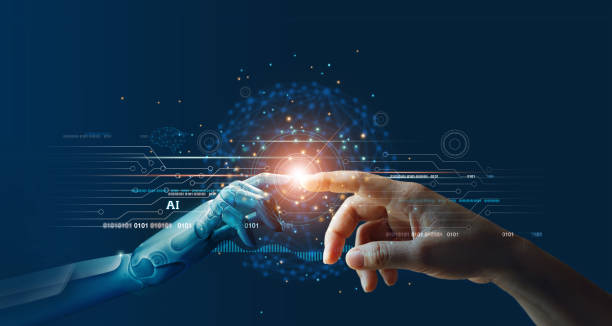
Introduction
AI has become the talk of the town in the last few years. Because of its learning capabilities and adaptive nature, it is getting better day by day. It has impacted us in many ways like how we work, and how we tackle issues. It has shown a significant change in almost all of the sectors whether it is Education or Health, finance or automobile. We will get into the details of AI, including its main ideas, and its impact on us in the coming future.
The Evolution of AI
The concept of artificial intelligence has historical roots, however, significant advancements have been made in this domain during recent decades. During this time, the Turing Test was created by British computer scientist Alan Turing. This was a Milestone. The goal of the Turing Test was to see if a machine could behave in a way that can be the same as a person.
The word “artificial intelligence” was made up in 1956. This was the start of AI as a formal field of study. Since then, AI has reached many important breakthroughs, such as the creation of expert systems, machine learning algorithms, and deep neural networks.
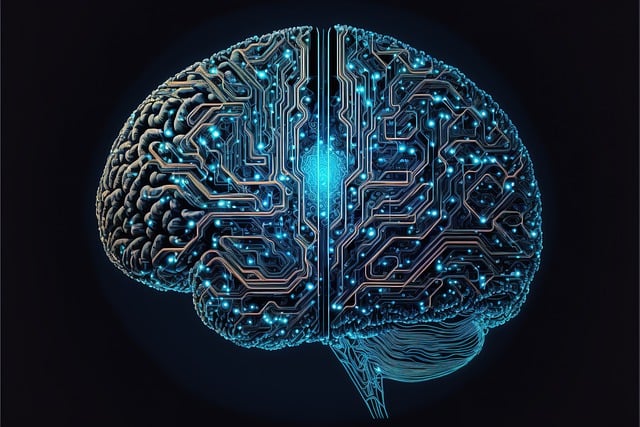
Image Source: pixabay
Types of Artificial Intelligence
Artificial intelligence can be categorized in three different categories: Narrow AI, General AI, and Superintelligent AI
Narrow AI
Narrow AI, which is also called “weak AI,” is a term for AI systems that are made to do specific jobs very well. Narrow AI includes things like Siri and Alexa, which are virtual assistants, advice algorithms used in online shopping platforms, and software that can recognize images.
General AI
This kind of AI can understand, learn, and use what it knows in many different areas. But experts still have quite a ways to go before they achieve true general AI.
Super intelligent AI
This made-up AI could be better than humans at complex cognitive skills, and experts have been debating on it.
Key Concepts in AI
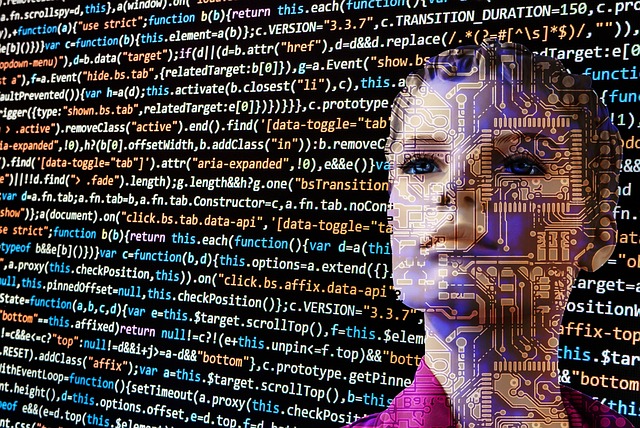
Image Source: Unsplash
Supervised Learning
In supervised learning, data that has been identified is used to teach the AI system how to do something. By looking at the pairs of inputs and outputs, the system can learn to correctly predict or classify new data it hasn’t seen before.
Unsupervised Learning
Unsupervised learning is when an AI system is trained on unnamed data, which lets it find patterns or structures on its own. This method works well for jobs like clustering, finding outliers, and reducing the number of dimensions.
Reinforcement Learning
Reinforcement learning allows an artificial intelligence agent to interact with its surroundings and optimize its behavior through trial and error. Positive or negative reinforcements help the agent make difficult decisions.
Applications of Artificial Intelligence

Healthcare
Artificial intelligence is revolutionizing the healthcare industry by facilitating the identification of illnesses, discovering novel pharmaceuticals, and devising customized therapeutic regimens. Machine learning algorithms have the capability to analyze medical records, images, and genetic data in order to accurately diagnose medical conditions and recommend optimal treatment options.
Finance
AI algorithms are used in the financial sector to find fraud, do algorithmic trade, and evaluate risk. These systems can quickly look at a lot of financial data, find trends, and make predictions in real time, which helps people make decisions.
Transportation
AI played a vital role in self-driving cars and smart transportation systems. AI-powered vehicles can see their surroundings and make good choices by using computer vision and sensor technology. This makes the roads safer overall.
Customer Service
In customer service, chatbots and virtual assistants that are powered by AI are becoming more popular. These systems use algorithms for natural language processing and machine learning to understand what customers want and answer them quickly and correctly.
Manufacturing
AI has changed the production industry by making automation possible and making operations more efficient. When AI is added to robots, they can do repetitive jobs more accurately, which cuts down on mistakes and boosts productivity. Machine learning algorithms also allow for predictive maintenance, which helps find and stop machine failures before they happen.
Education
With the help of AI, we can analyze large amounts of data to create personalized learning experiences for students. This enables the creation of personalized learning paths, sorting content, and allowing students to learn at their own pace based on individual requirements.
Benefits of Artificial Intelligence
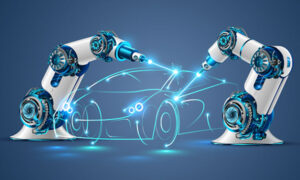
Artificial intelligence is becoming the buzz of the day, which is good for many businesses as well as for society.
Increased Efficiency
AI automation gets rid of the need for people to do manual or repetitive chores. This makes businesses more efficient and productive, which lets them reduce their work and get better results.
Improved Decision Making
With the help of AI, we can process huge amounts of data and take out useful information to make decisions based on the analysis. AI algorithms help businesses make choices based on data by finding patterns and trends. This leads to better results and a competitive edge.
Automation of Repetitive Tasks
We can automate repetitive jobs which saves time and makes fewer mistakes.
Enhanced Customer Experience
Chatbots and virtual assistants that are driven by AI offer support around the clock, which makes the customer experience better. These systems can quickly answer customer questions, make personalized suggestions, and offer help around the clock, which makes customers happier and more loyal.
Challenges and Concerns of Artificial Intelligence
Artificial Intelligence (AI) has great potential but there are some concerns that require resolution.
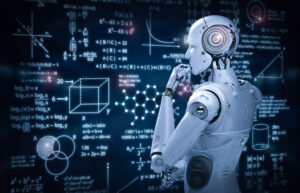
Job Displacement
When AI systems automate chores, it makes people worry about losing their jobs. As AI technology improves, some jobs may become less useful, so workers may need to learn new skills and adapt to changing work settings.
Ethical Considerations
Concerns have been raised about what AI means for ethics. Issues like AI bias, privacy violations, and how AI-powered technologies could be used wrongly need to be carefully looked at to make sure AI is built and used in an ethical and responsible way.
Bias and Discrimination
AI systems can take on the biases of the data they were trained on. This can lead to things that are unfair, like hiring methods that are biased or not treating everyone the same when making decisions. People are working on creating AI models that are fair and include everyone.
Privacy and Security
When we are using AI a lot, it has our personal information and data related to us. We need to be more strict and focused on what information we are sharing.
Future of Artificial Intelligence
As AI keeps getting better, we can expect to see innovations that will change the future. Below are a few places where AI has a lot of potential.
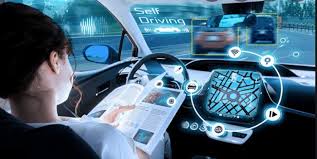
Advancements in Robotics
AI-powered robots are a field that is always getting better. Robots are getting better at communicating with people and doing hard jobs. Robotic improvements will have big effects on fields like healthcare, industry, and space travel.
Integration with the Internet of Things (IoT)
Smart systems can be made more powerful when they are integrated with IoT. They can gather and analyze huge amounts of data in less time. This coming together makes it possible for smart cities, self-driving cars, and connected gadgets that improve efficiency and make life easier.
AI in Space Exploration
Artificial intelligence is a key part of exploring space. AI algorithms can look at information from satellites and rovers to help find new celestial bodies, learn more about the world, and plan space missions.
Impact on Society
AI will transform work, health care, education, and enjoyment. Make sure AI technologies serve everyone and solve challenges.

Natural Language Processing
NLP improvements will make it easier for people and computers to talk to each other, making interactions more natural and effective.
Robotics and Automation
Robotics and automation that are powered by AI will change businesses by making people better at their jobs, speeding up processes, and doing tasks more precisely and efficiently. From making things to moving things around, robots will change the way people work in the future.
Ethical Considerations
It is essential to give some consideration to ethical issues as the usage of AI continues to spread throughout everyday life. It will be very important to find a mix between innovation and responsible AI development. This will make sure that AI systems are fair, transparent, and answerable.
Conclusion
Ai will be a game changer in the coming future. It can change how we work, and the way we tackle problems, and more importantly it will give humans more time to do the things which they like the most. It is making an impact on all sectors. Understanding AI’s basics, how it can be used, and what it means is important for people.

As AI keeps getting better, embracing its promise and keeping a close eye on ethics will pave the way for a future where people and machines can live together and do well.
The future of artificial intelligence is full of fascinating possibilities, and as time goes on, the implications that it will have for society will become clearer and clearer.
FAQs
Can AI take over the world?
No, AI cannot take over the world. While AI is powerful, it’s designed to assist and work with humans, not to replace them. Humans are still the ones who make important decisions and use AI as a tool to enhance their abilities.
Can AI have feelings?
No, AI doesn’t have feelings like humans do. AI is programmed to simulate certain behaviors and responses, but it doesn’t experience emotions the same way we do. Emotions are something unique to humans.
Is AI safe to use?
Yes, but considering ethics, privacy, and avoiding biases in AI systems. With proper care and oversight, AI can be a beneficial and safe tool.
Can AI learn on its own?
AI can learn and improve its performance, but it needs a lot of data and examples to do so. AI systems learn through a process called machine learning, where they analyze data and identify patterns. However, AI still requires human supervision and guidance to learn effectively.
Can AI become creative?
While AI can generate outputs that seem creative, it’s important to note that AI lacks true creativity like humans have. AI can generate new ideas or artwork based on patterns it has learned from existing data, but it doesn’t have the same imaginative and original thinking that humans possess.
What is the difference between narrow AI and general AI?
Narrow AI refers to AI systems that are made for specific tasks, while general AI can do a wide range of tasks as well as a person can.
How is artificial intelligence used in healthcare?
AI is used in healthcare to diagnose diseases, find new drugs, make personalized medicine, and look at patient data.
Can artificial intelligence replace human workers?
AI automation may take away some jobs, but it also makes new ones possible and forces people to focus on tasks that require creativity and critical thought.
What are the ethical concerns related to artificial intelligence?
Concerns about AI ethics include racism, privacy violations, and how AI-powered technologies could be used in bad ways.
What is the future of artificial intelligence?
The future of AI includes improvements in robotics, AI in space travel, IoT.

14 thoughts on “What is Artificial Intelligence? How does it effect world in 2023?”